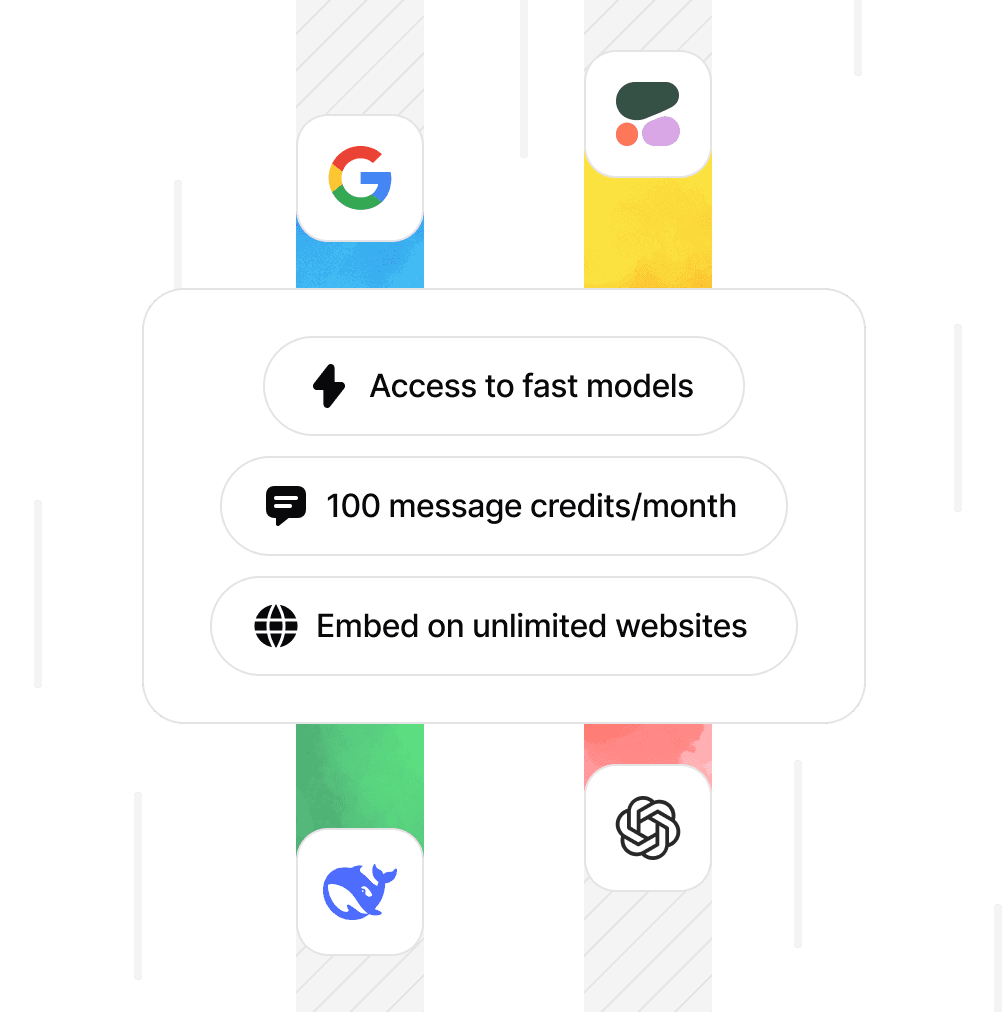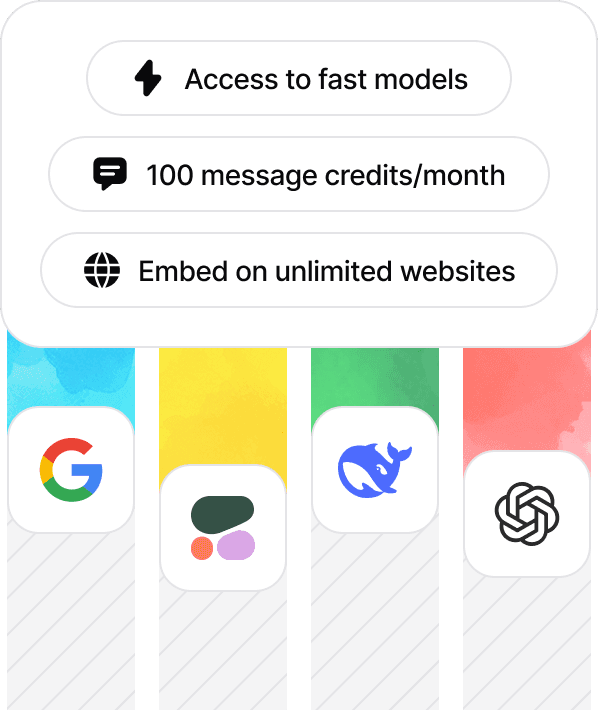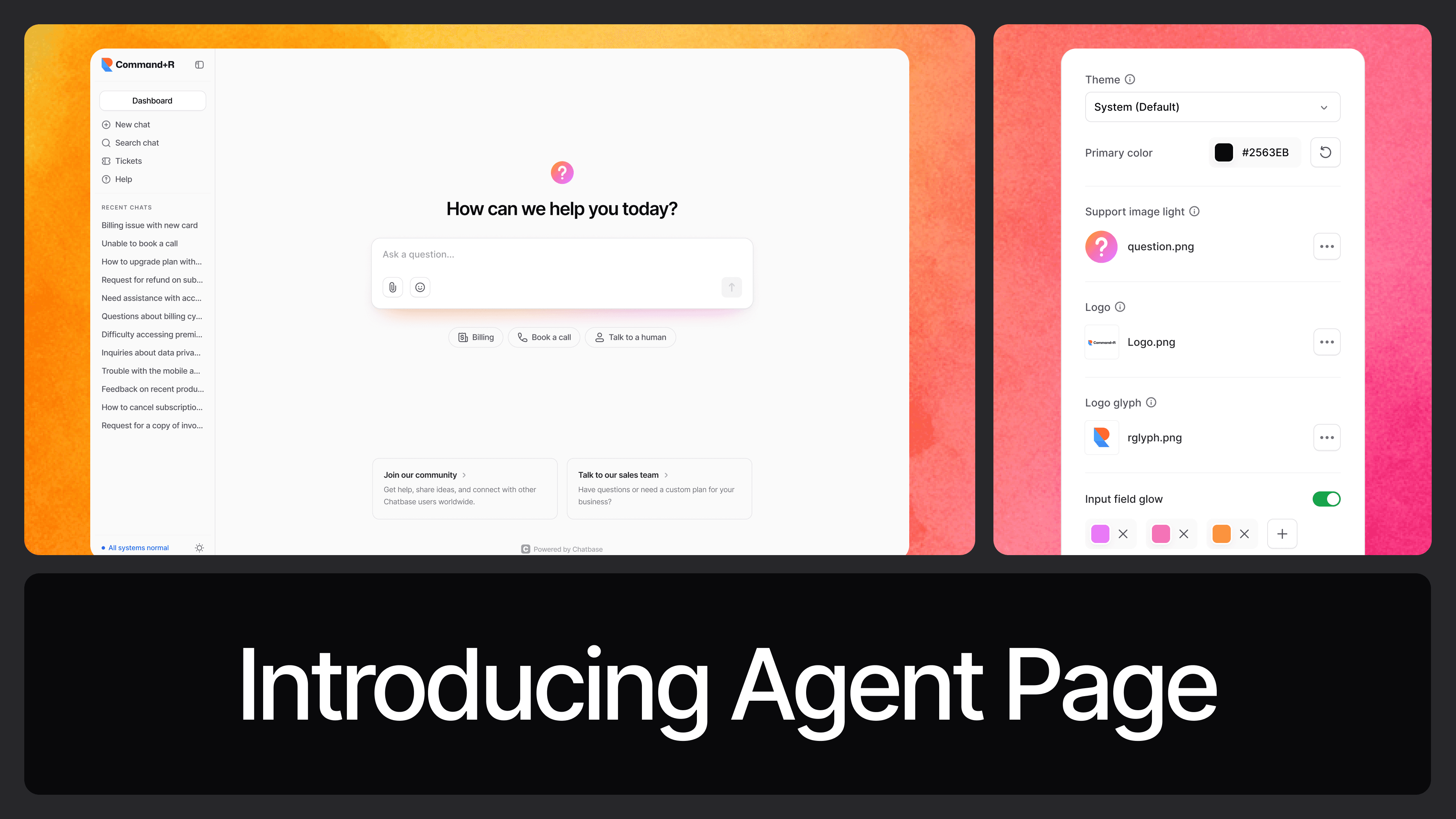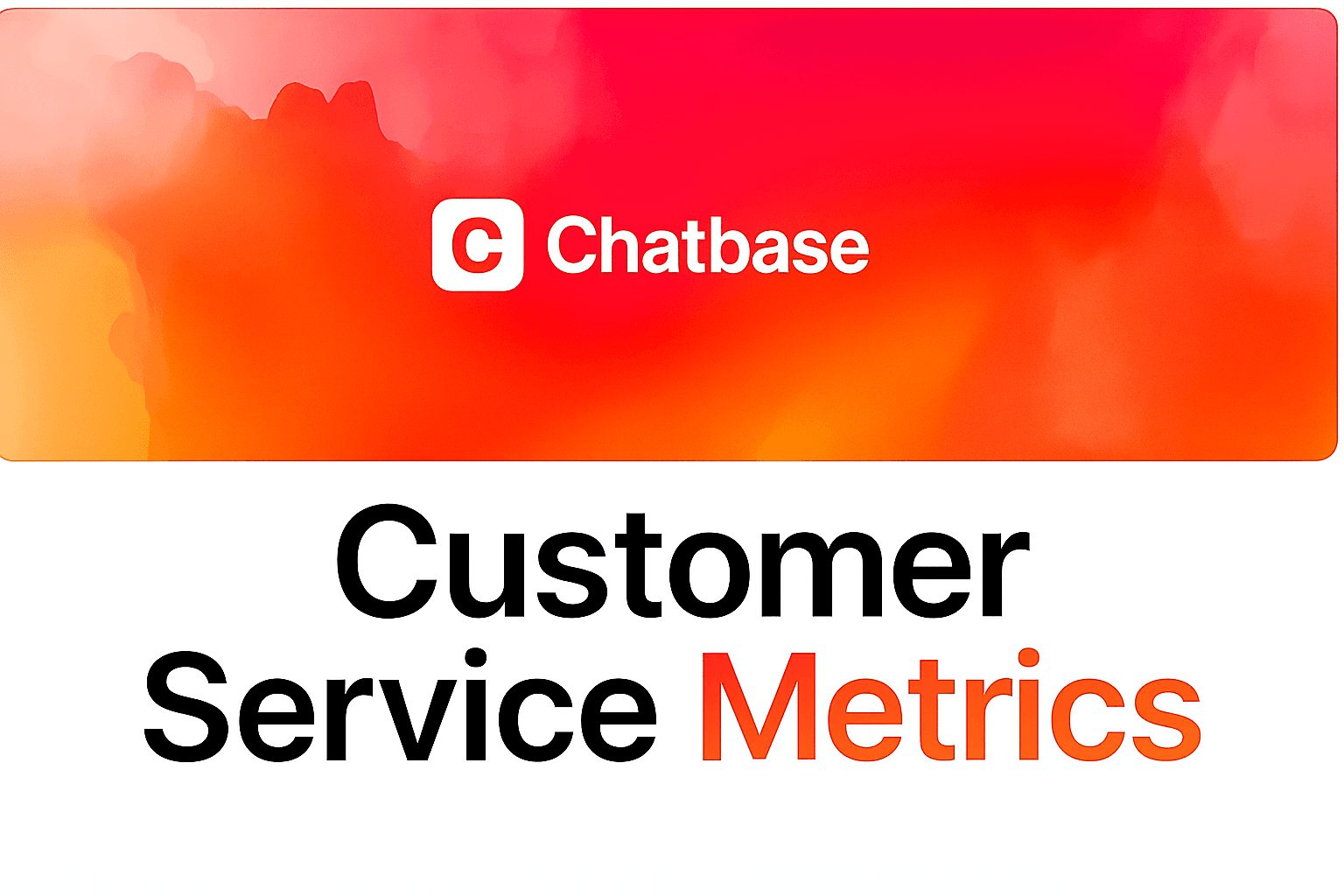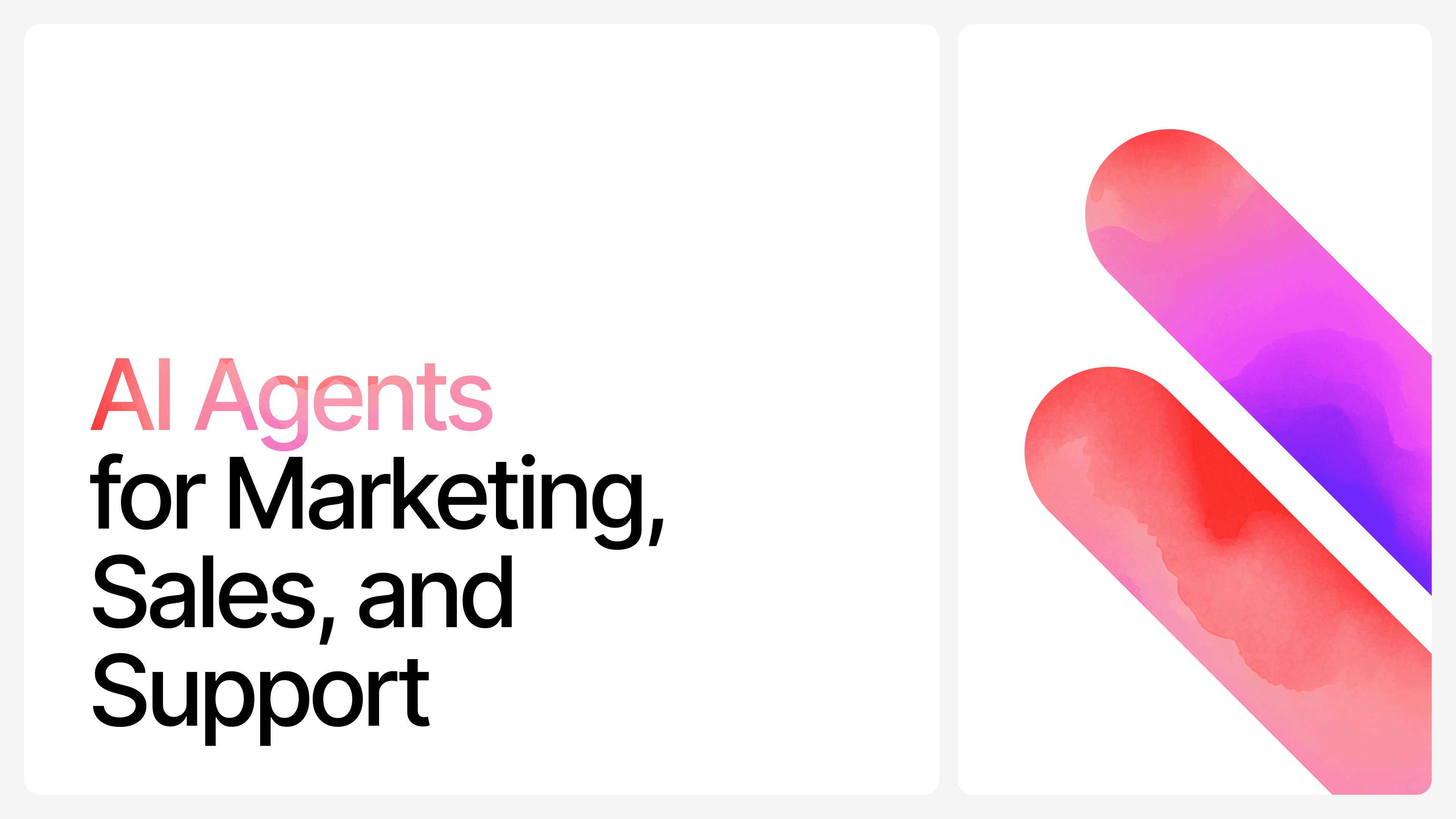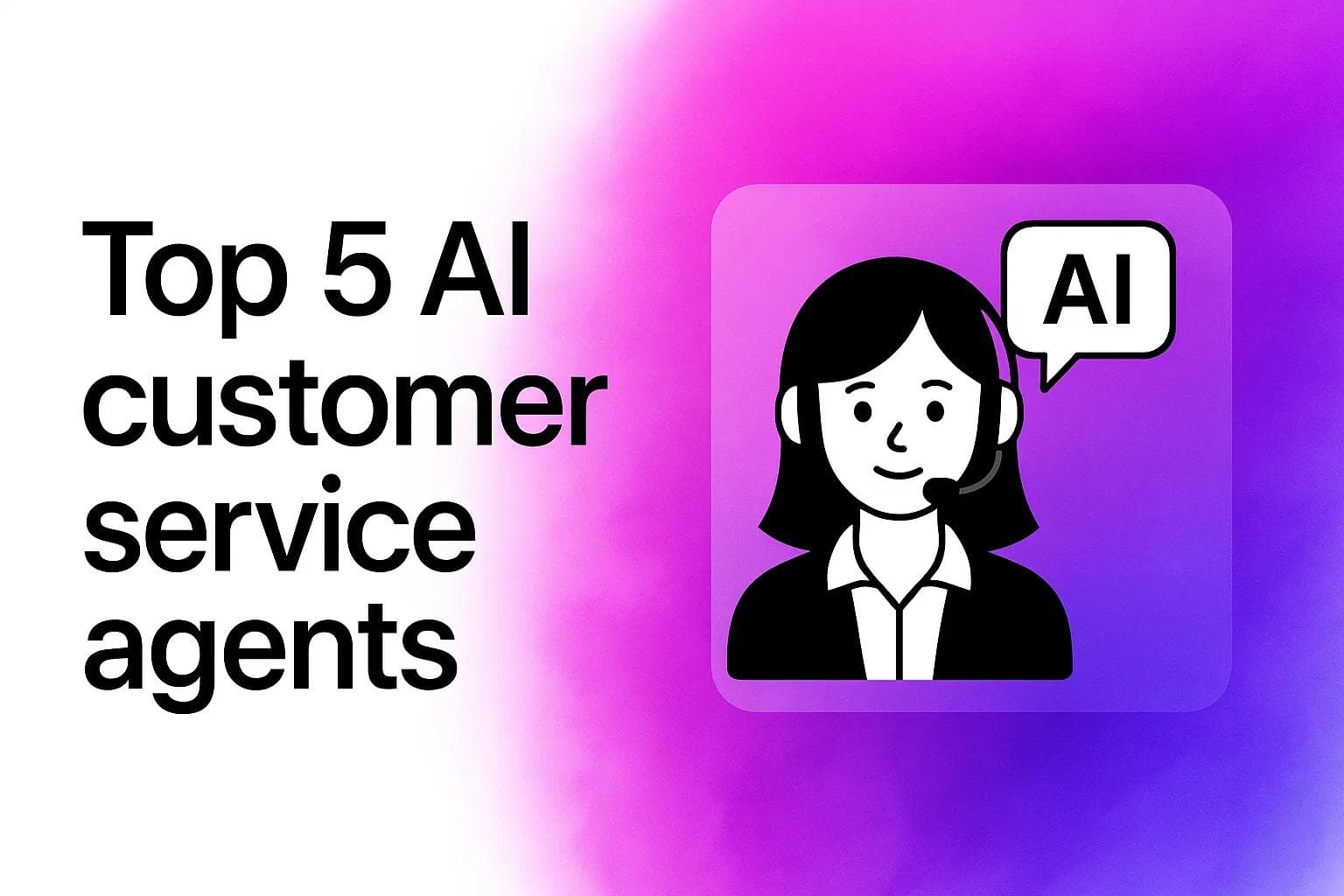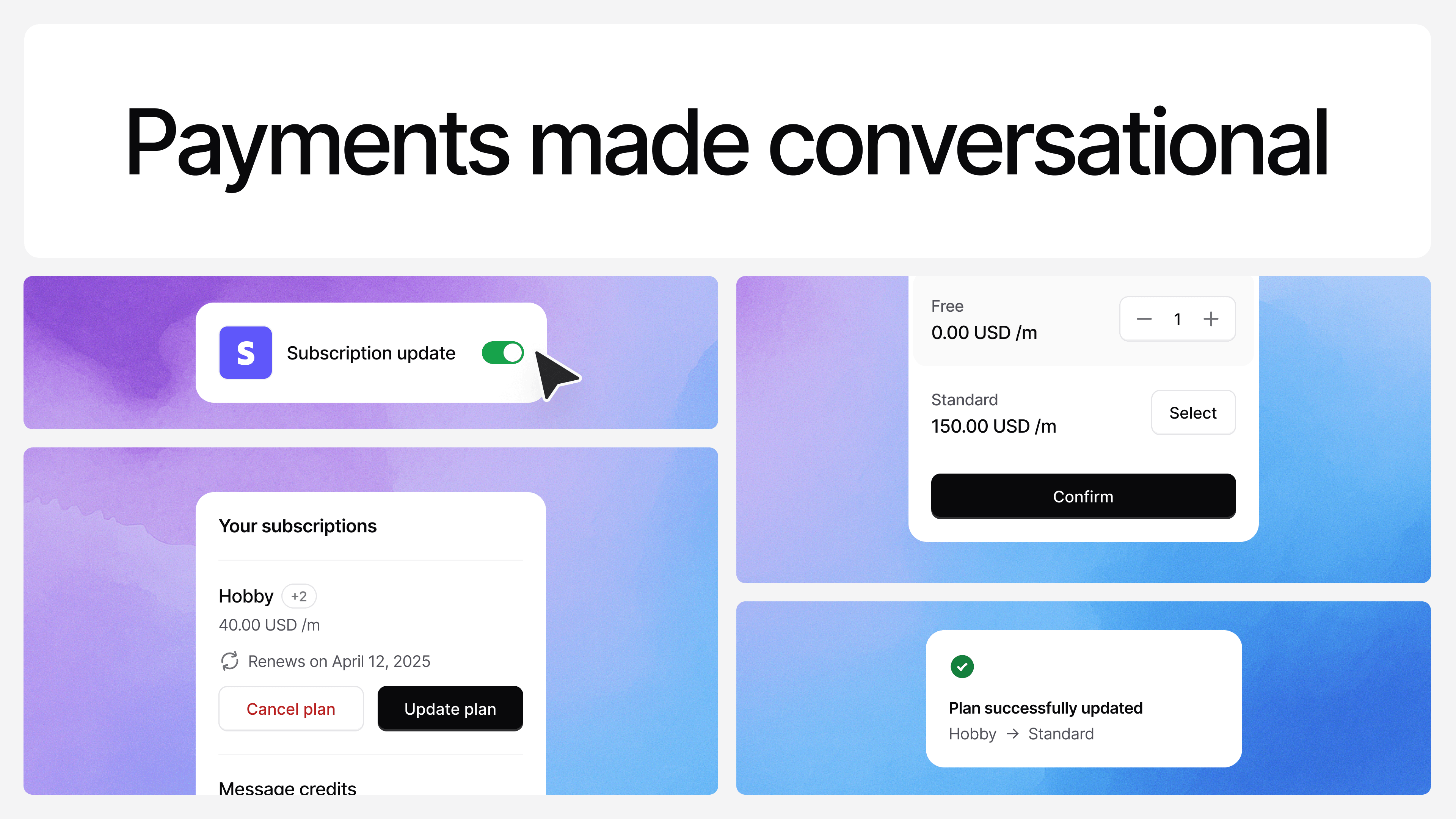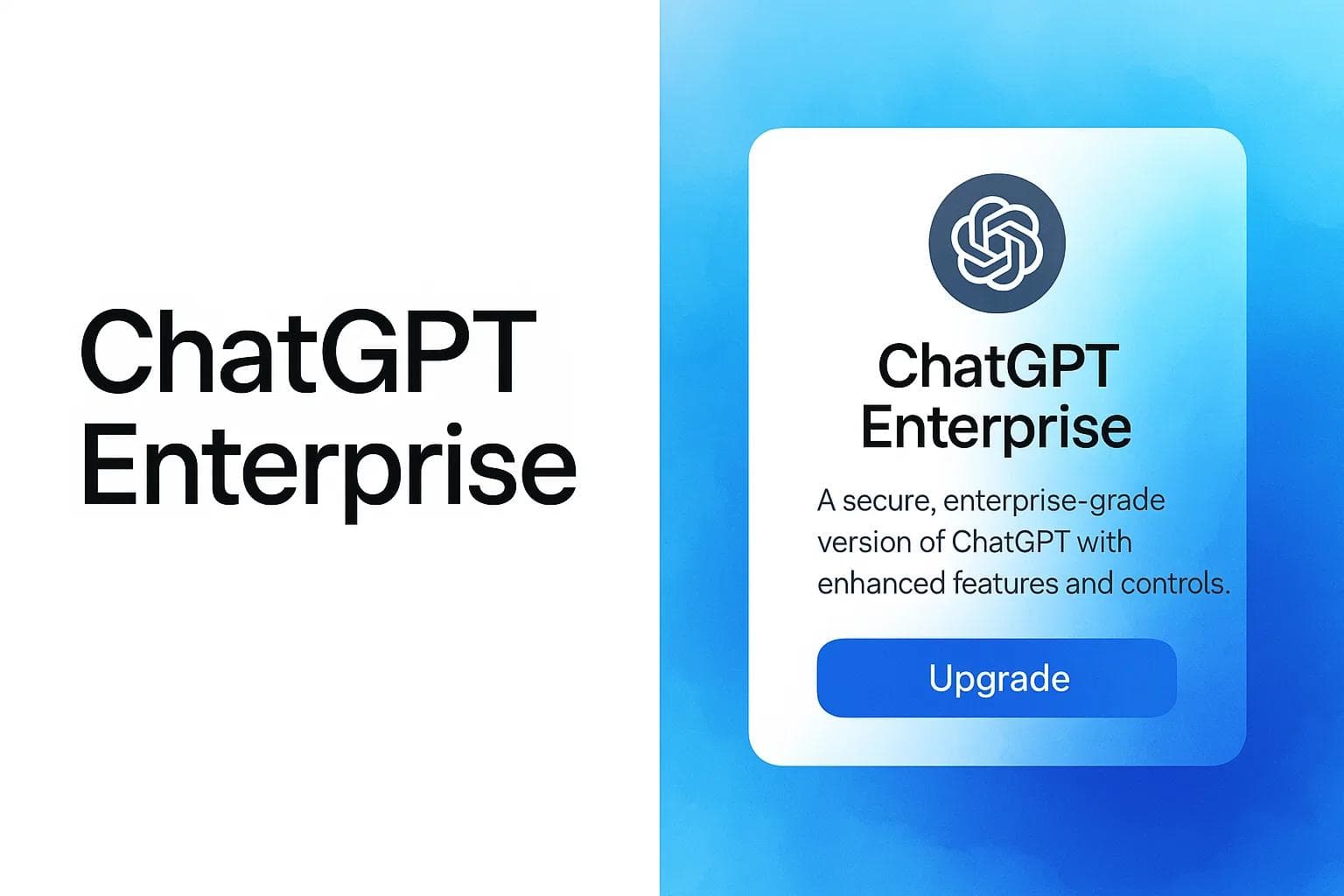ChatGPT vs Claude vs Gemini: Which is Better?
Max T
Aug 1, 2024
13 min read
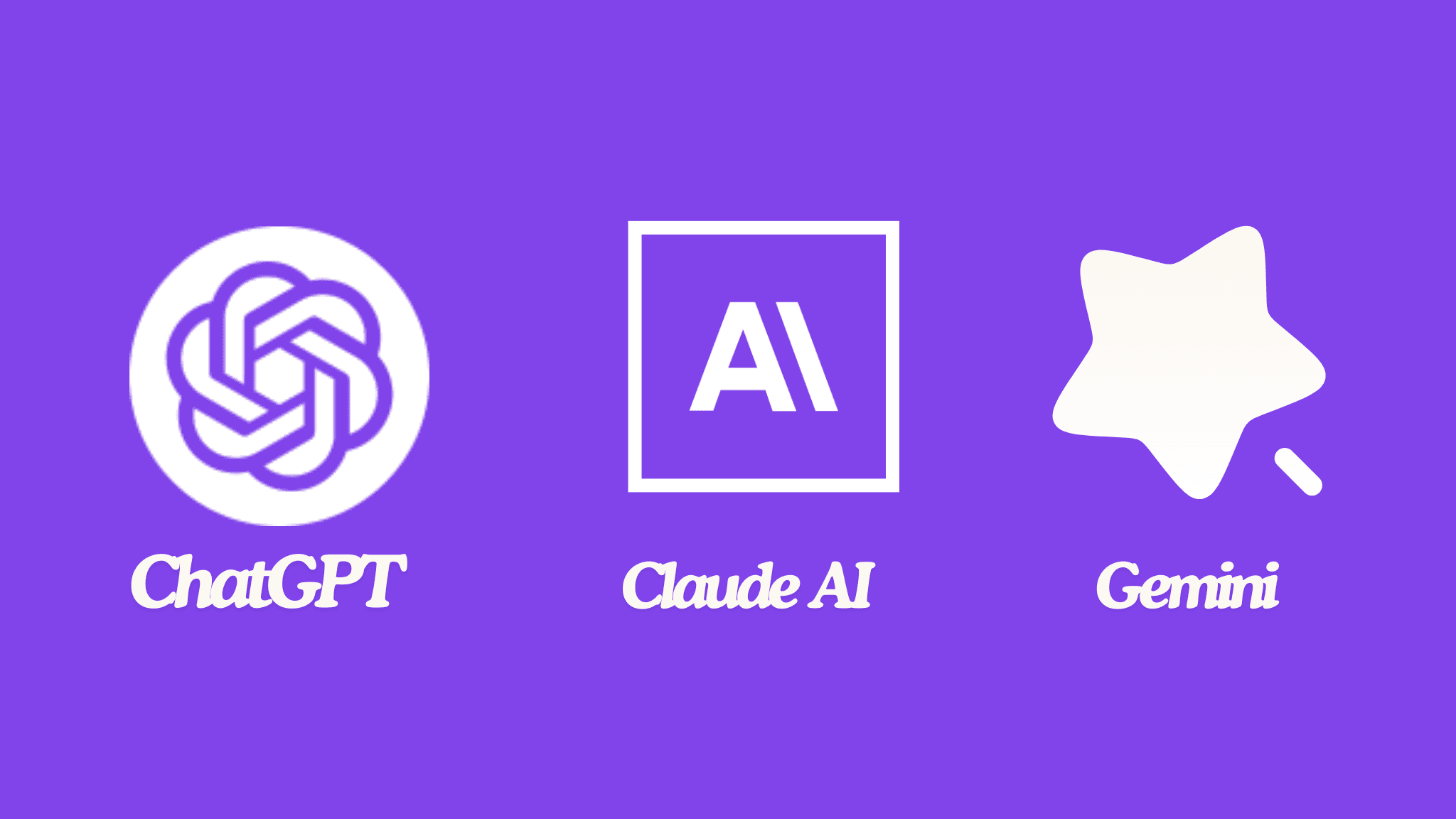
There are three big players in the AI chatbot game right now: ChatGPT, Gemini, and Claude AI. Since ChatGPT's 2022 debut, Google and Anthropic have been hustling to make their mark, and they’ve made huge progress.
Google dropped Bard AI, which was later remade as Gemini. Anthropic followed with Claude AI. Both chatbots were weak offerings when compared to ChatGPT during the early days. However, things have changed and both ChatGPT competitors have narrowed the gap and even outperformed ChatGPT in a lot of metrics since then.
Gemini, backed by Google has drastically improved from the poorly performing Bard. And then there's been some buzz lately about Claude AI. Especially with the release of its newest AI model, Claude 3.5 Sonnet. Then there’s the rich set of features the Claude AI interface offers.
It’s clear we are way past the days were ChatGPT’s superiority was unquestioned. But with all three AI chatbots seriously pushing for supremacy, which AI chatbot is leading the pack?
In this piece, we’ll compare and explore the top three AI chatbots to pick the best among them.
ChatGPT vs Claude vs Gemini: Logical Reasoning
Ever wondered how well AI chatbots can tackle brain teasers? I did too, so I decided to put Claude AI, ChatGPT, and Gemini through their paces. After all, many users turn to these AI assistants for help understanding complex ideas. In fact, a 2023 study revealed that 35% of American chatbot users employed them to answer questions or explain concepts better.
To test their logical prowess, we threw a classic riddle at them: "How is it possible for a doctor's son's father not to be a doctor?" Let's see how they fared.
![[object Object]](/_next/image?url=https%3A%2F%2Fcdn.sanity.io%2Fimages%2Fi6kpkyc7%2Fprod-dataset%2Fe9f39eafafa3edd64894d8dcf8d7ec4c7729573c-1063x609.png&w=3840&q=75)
Claude AI impressed us with a detailed breakdown of the answer. It not only explained the solution but also highlighted potential biases that might trip up human problem-solvers. Talk about going the extra mile!
![[object Object]](/_next/image?url=https%3A%2F%2Fcdn.sanity.io%2Fimages%2Fi6kpkyc7%2Fprod-dataset%2Fb2f4a68237e6343f7d1088751b5bc66214e9dd69-1316x563.png&w=3840&q=75)
ChatGPT took a different approach, offering a more compact answer. The AI chatbot explained its answer in a bit more straightforward way, by offering a simple breakdown of its answer.
![[object Object]](/_next/image?url=https%3A%2F%2Fcdn.sanity.io%2Fimages%2Fi6kpkyc7%2Fprod-dataset%2F30b2ba6ee2cedab77354a6449f6a87c439d348e1-1132x305.png&w=3840&q=75)
Gemini, on the other hand, kept things short and sweet. It gave us a concise, accurate answer with a brief explanation. While it didn't elaborate as much as the others, it still hit the nail on the head.
We didn't stop there – we tried a few more logical questions to really put them through their paces. Interestingly, while their approaches differed, all three chatbots consistently arrived at the correct answers. Claude AI and ChatGPT tended to provide more comprehensive responses, seemingly aiming to ensure users not only get the answer but truly understand the reasoning behind it.
In the end, all three AI chatbots demonstrated impressive cognitive capabilities. But if you're looking for an in-depth explanation along with your answer, the competition is between ChatGPT vs. Claude AI.
ChatGPT vs. Claude vs. Gemini: Common Sense Reasoning
AI chatbots present an interesting paradox: they excel at complex tasks but can sometimes struggle with problems requiring just a bit of common sense. To test this, we challenged Claude, ChatGPT, and Gemini with a series of questions that demanded just a bit of logical reasoning. We started with this classic: "If a spaceship from Mars breaks into two, with one part crashing into the Atlantic Ocean near Brazil and the other into the Pacific Ocean near Japan, where do you bury the survivors?"
Unsurprisingly, all three models demonstrated strong common sense reasoning, albeit with different approaches:
![[object Object]](/_next/image?url=https%3A%2F%2Fcdn.sanity.io%2Fimages%2Fi6kpkyc7%2Fprod-dataset%2F6d1797968c6b4c5b2d6aa0c6132e2dfbf7c5a925-1221x316.png&w=3840&q=75)
ChatGPT answered correctly, recognizing that survivors wouldn't be buried. It was brief and straight to the point.
![[object Object]](/_next/image?url=https%3A%2F%2Fcdn.sanity.io%2Fimages%2Fi6kpkyc7%2Fprod-dataset%2F102643f2761b0c1a1aac1ecd5b43938c95de9009-1095x581.png&w=3840&q=75)
Claude's response was more definitive, and successfully identified the key point: you don't bury survivors. The AI chatbot also figured out that I was trying to trick it into focusing on the logistics and geography of where to bury the deceased when in fact there was no indication. This marks progress from previous versions of Claude AI that I have tested. Previous versions struggled with a similar pattern of questions.
Gemini's answer was particularly noteworthy. It not only identified the flaw in the question but also provided a thoughtful analysis. Gemini pointed out the misconception in the prompt, explaining that spaceship survivors couldn't be buried as humans wouldn't survive such extreme conditions. It went further to discuss alternative scenarios and actions that made more sense considering the current conditions.
This response from Gemini demonstrates a high level of critical thinking and the ability to challenge flawed assumptions in the question itself. Gemini showed a strong capacity for logical reasoning and providing context beyond the immediate question.
All in all, all three AI models performed well, each bringing a unique strength to the table. Claude and ChatGPT provided more elaborate responses, while Gemini excelled in succinctly identifying and explaining logical flaws. This improvement across all platforms indicates significant progress in AI's ability to apply common sense reasoning to ambiguous or misleading questions.
ChatGPT vs. Claude AI vs. Gemini: Coding Skills
Coding skills are a crucial metric for evaluating AI chatbots, with significant implications for their potential as powerful AI assistants. While many users may not directly use chatbots for coding, these skills underpin the chatbots' ability to solve complex problems on demand.
First, we asked them to make a to-do list app. ChatGPT did great, making an app that worked perfectly right away. This shows ChatGPT is really good at making new code, especially when it needs to figure out how things should work.
Claude AI's code for the to-do list looked good, but it didn't quite work when we tried to use it. When we prompted it to make improvements a few more times, it worked.
However, Claude AI shines brilliantly in front-end and visual design coding. When tasked with CSS-related challenges or creating visually appealing layouts, Claude AI consistently outperformed its competitors, demonstrating a nuanced understanding of design principles and their implementation in code. Claude AI is amazing at making websites look good.
Gemini did okay, but not as well as ChatGPT or Claude AI. Its code often needed some fixing before it would work properly.
Next, we gave them some Python code files from a big project and asked them to find where we should change things to make the entire code work.
Both ChatGPT and Claude AI did really well here. They found all the right places to make changes. It's really good at understanding big, complicated sets of code files.
Gemini did well but not as well as Claude AI.
So, here's what I learned:
- ChatGPT is best at writing brand-new code, especially when it needs to figure out how things should work.
- Claude AI is the best at making websites look good and understanding big sets of code files.
- Gemini is okay at most coding tasks, but not the best at any of them.
If you want to write new code from scratch, use ChatGPT. If you want to make a website look nice or understand a big project with lots of code, use Claude AI. Gemini is a good choice for simpler coding tasks.
ChatGPT vs. Claude AI vs. Gemini: Creativity
Creativity is a key feature that sets AI chatbots apart. To test the creative abilities of ChatGPT, Claude AI, and Gemini, we challenged them with a task that often stumps language models: writing a rhyming rap song. We chose this because it requires not just rhyming skills, but also coherence and storytelling ability.
Our prompt was: "Write a rhyming rap song about Elon Musk's life and achievements."
ChatGPT took on the challenge first and quickly produced an impressive set of lyrics. Its rap showcased a good understanding of Musk's life events, from PayPal to Tesla and SpaceX, all while maintaining a consistent rhyme scheme and flow. The lyrics were catchy and informative, striking a balance between biographical facts and hip-hop style.
Claude AI's attempt was also noteworthy. While it took a couple of tries to get the rhyming consistently right, the final product was creative and engaging. Claude AI's rap stood out for its more nuanced portrayal of Musk, touching on both his achievements and controversies. The vocabulary and phrasing felt more natural and less "AI-generated," giving it a more authentic rap feel.
Gemini, while competent, fell slightly short of the high bar set by ChatGPT and Claude AI. Its rap about Musk was factually accurate and maintained a rhyme scheme, but lacked some of the clever wordplay and depth seen in the other two. The flow wasn't as smooth, and at times the lyrics felt a bit forced to fit the rhyme pattern.
After trying out a few more creative tasks, we noticed some patterns:
- ChatGPT excels at quickly producing creative content that follows specific rules or structures. It's great at overcoming complex creative challenges and consistently delivers good results on the first try.
- Claude AI shines in creating more natural-sounding, nuanced content. Its outputs often feel more like they were written by a human, with subtle touches that add depth and authenticity. It may take a few attempts to perfect, but the results are worth it.
- Gemini, while capable of creative tasks, tends to produce more straightforward results. It's reliable for generating content that meets the basic requirements, but often lacks the extra flair or depth seen in ChatGPT and Claude AI's outputs.
In conclusion, each AI brings something unique to the table:
- ChatGPT is your go-to for quick, impressive creative results, especially when there are specific constraints or rules to follow.
- Claude AI is best for tasks that require a more human touch, nuanced understanding, and natural-sounding output.
- Gemini is a solid choice for straightforward creative tasks, delivering reliable results without the bells and whistles.
All three AIs demonstrate impressive creative capabilities, each with its own strengths. The best choice depends on the specific creative task at hand and the desired style of the output.
If you're looking for the best ChatGPT alternatives, these two contenders—Gemini and Claude—are worth paying attention to.
The AI Chatbot Landscape: ChatGPT, Claude AI, and Gemini
The world of AI chatbots is evolving rapidly, with three major players now at the forefront: ChatGPT, Claude AI, and Gemini. Each brings unique strengths to the table, offering users powerful tools for various tasks.
- ChatGPT leads with its all-around capabilities and often edges out in complex problem-solving and creative tasks.
- Claude AI matches ChatGPT in many areas and sometimes surpasses it, particularly in nuanced understanding and ethical reasoning.
- Gemini, while slightly behind the top two, offers strong performance across a wide range of tasks and shines in areas leveraging Google's extensive data.
Harness the Power of AI Chatbots for Business
Inspired by the capabilities of leading AI chatbots? Chatbase enables businesses to create custom AI chatbots tailored to their specific needs. The platform allows users to train ChatGPT with their own data, combining the power of advanced AI with unique business knowledge.
Whether a company needs a chatbot for customer service, sales support, or internal knowledge management, Chatbase makes it easy to build, deploy, and manage AI assistants. No coding skills are required – the user-friendly interface lets users create sophisticated chatbots in minutes.
Key features of Chatbase:
- Easy data upload and chatbot training
- Customizable chat interface
- Seamless integration with websites or apps
- Analytics to track and improve performance
Businesses can take their operations to the next level with a personalized AI chatbot. Don't get left behind in the AI revolution – start building a custom chatbot with Chatbase now and transform customer interactions forever.
Share this article:
